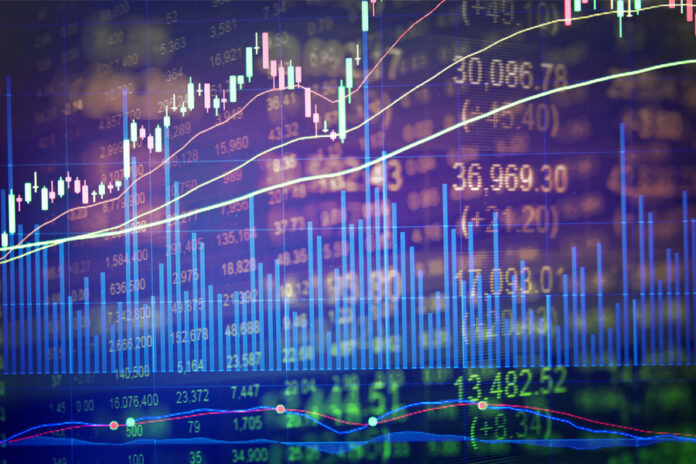LONDON: Is everyone buying the dip? Global equity markets have bounced back, recovering last week’s omicron-driven losses, as fears about the impact of the latest coronavirus variant on economic growth ease.
Oil prices joined the party after plunging last week on omicron fears. Gas prices also pushed higher though that is more linked to Washington’s warning of “nuclear” sanctions against Russia if it decides to invade Ukraine.
But whatever the markets are saying right now, it is clear the number of omicron cases is rising quickly and governments are worried enough to have imposed fresh restrictions on at least some — mostly leisure related — economic activity to combat the increase.
Financial markets have perhaps bullishly interpreted the WHO declaration that it is too early to determine whether omicron causes more serious illness, or whether it is immune to current vaccines. The WHO also pointed out that no one has so far died with the variant despite its existence in 38 countries.
Against that, a study from South Africa, published on Friday, found omicron is 2.4 times more likely than previous variants to reinfect someone who has already had COVID-19. Jeremy Farrar, director of the medical research group Wellcome Trust, commented recently that the “variant reminds us all that we remain closer to the start of the pandemic than the end.”
This is why, unlike financial markets, governments are currently hedging their bets.
Speaking last week, US Treasury Secretary Janet Yellen, warned the variant could slow global economic growth by exacerbating existing pandemic induced supply chain problems and choking consumer demand.
Her view was echoed by International Monetary Fund chief Kristalina Georgieva.
Further disruption to supply chains will intensify existing record inflationary pressures in the global economy amid the still tentative vaccine induced recovery.
Thus, along with the risk omicron poses, there are concerns about central bank tightening, primarily from the US Federal Reserve.
Mark Haefele at UBS Global Wealth Management is optimistic about growth but cautioned: “We see two bear cases: First, that omicron has sufficiently severe symptoms and transmissibility that governments turn to lockdowns to control the outbreak. The second bear case is that government restrictions delay a normalization of supply chains and drive fears of stagflation and monetary tightening.”
Commenting on omicron impact on the oil market, JP Morgan analyst Natasha Kaneva said she expected a 650 kbd (1,000 barrels per day) impact to oil demand, with reduction almost evenly split in percentage terms among jet fuel, diesel and gasoline. “However, our models suggest that, once potential omicron-related lockdown measures ease heading into summer 2022, there will be a bounce-back effect, likely indicative of pent-up demand,” she said.
Based on the current omicron infection rates the best case scenario at the moment is that while the variant is highly transmissible, those infected will continue to show only mild symptoms.
So far, the response from governments in Europe and the US has been largely limited to restricting travel from abroad — including arrivals from some countries being forced to quarantine in hotels — and increased testing for travelers, to try and stop the spread.
This week, energy ministers from oil producing countries, including Saudi Arabia and Qatar, decided not to travel to the US for the delayed World Petroleum Congress in Houston due to omicron concerns.
However, the omicron variant is now increasingly found in people who haven’t traveled anywhere, or in many cases, had any connections with travelers.
Governments, reluctant to embark on another round of fresh domestic restrictions, have focused on ratcheting up vaccination programs encouraging people to get booster jabs.
But restrictions are being slowly reintroduced.
All international travelers to the US are now required to test within one day of their departure.
In Germany, Europe’s biggest economy, the government has banned unvaccinated people from most public spaces, prohibiting them from entering all premises apart from grocery stores and pharmacies. It is also plans to make vaccination compulsory next year.
Belgium’s government has told people to work from home and will close its schools a week earlier for Christmas. In Italy unvaccinated people are prohibited from certain leisure activities. France and Ireland have closed night clubs and restricted gatherings.
Austria is back in lockdown and unvaccinated people who breach lockdown rules face fines of up to €500 ($562). Anyone refusing to comply with vaccination status checks could be fined up to €1,450.
The new crackdown, though in most cases mild compared to earlier lockdowns, has resulted in a number of protests over the last two weeks in some countries.
Against that backdrop, the current bull market in the midst of uncertainty that omicron is causing to governments is surprising.
Despite fears about tighter monetary policy, Barclays Capital’s managing director Emmanuel Cau summed up the current confidence in financial markets. He said: “We remain of the view that overall macro and liquidity conditions are supportive of equities, and advise to add on weakness, looking for the bull market to carry on.”
For once financial institutions appear to have confidence in uncertainty.

